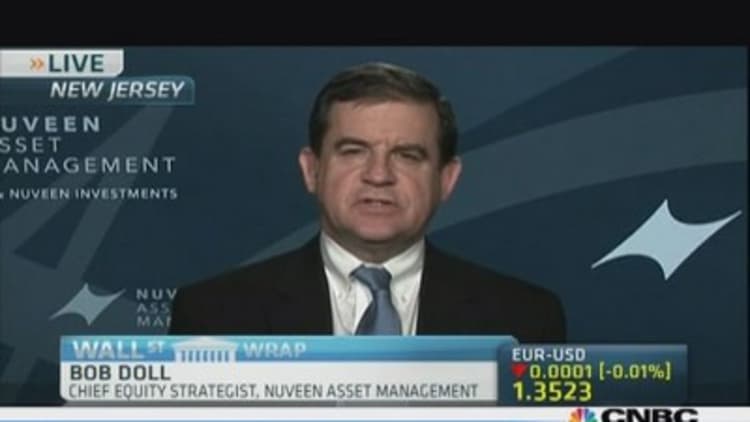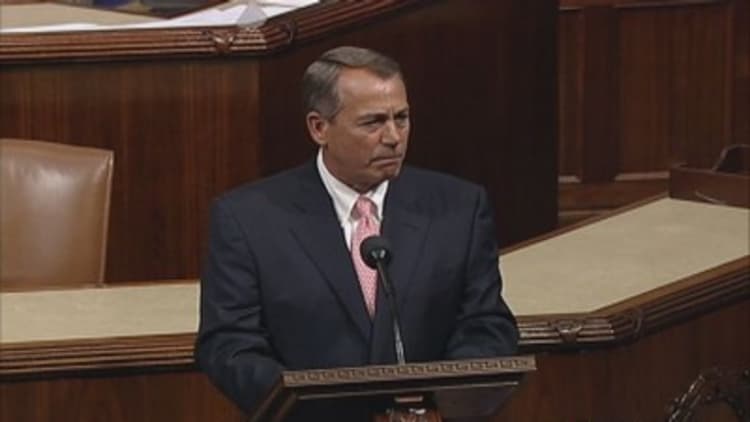The first partial shutdown of the U.S. government in 17 years is likely to weigh on confidence, encourage the Federal Reserve to maintain its monetary stimulus program and leave risk aversion hanging over global markets, analysts say.
U.S. lawmakers failed to reach an agreement over a federal budget to meet an October 1 deadline, triggering a partial shutdown of the government that involves federal agencies cutting back on services and leaves an estimated 800,000 federal employees facing temporary unpaid leave.
(Read more: U.S. government shuts down,next steps unclear)

Financial markets have braced for a shutdown in recent days as Congress bickered over a bill to fund the government and the dollar slipped on Tuesday after the deadline to reach an agreement passed.
U.S. stock futures were little changed in Asia trade, while European stock markets opened mixed and Asian shares were mostly higher.
"I think a deal will have to be done, but as we saw with the fiscal cliff debate last year, [U.S. lawmakers] will push this out as much as they can," Mike Ingram, market analyst at BGC Brokers in London, told CNBC. "That means markets will remain volatile and choppy."
Government shutdown fears sent the S&P 500, a broad measure of U.S. stocks, to a three-week low on Monday, while the U.S. dollar on Tuesday hovered near the previous day's one-month low against the yen and 7-1/2 month trough against a basket of other major currencies.
Uncertainty in the U.S., together with political turmoil in Italy, means risk aversion is the flavor of the day for global markets. 101071822
What now?
Analysts said the stalemate in the U.S. Congress over the budget did not bode well for the more important discussions that are due to take place later this month on the debt ceiling.
They added the wrangling was damaging for business sentiment and if there is no budget deal soon, the Federal Reserve could be tempted to leave its $85 billion-a-month asset purchase program in place for longer than anticipated to support the economy.
(Read more: Congress could kill stock rally if government shutdown drags on)

"[The government shutdown] means there is going to be even more slowing in the U.S. economy and a big dampener to [gross domestic product] expectations going forward," said Ron Heller, CEO of Peritus Asset Management. "I think people now are sitting on their hands in this economy and things are not looking good going into the holiday season."
(Read more: If US shuts down, what happens to Friday's jobs data?)
Richard Martin, managing director at advisory firm IMA Asia, added: "If [lawmakers] can resolve their differences in the next few days, there should be no differences to U.S. forecasts but if this runs on for two weeks or more, we will lose a third off growth in the U.S. in the fourth quarter."
"Of course the Federal Reserve will watch this mess and it will be harder to taper," Martin said.
The U.S. economy expanded at an annual rate of 2.5 percent the second quarter of the year.
—By CNBC.Com's Dhara Ranasinghe;Follow her on Twitter @DharaCNBC


